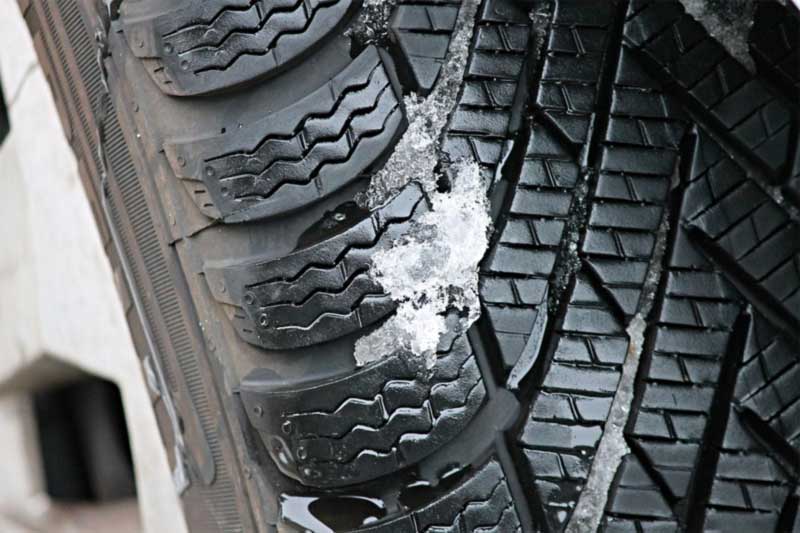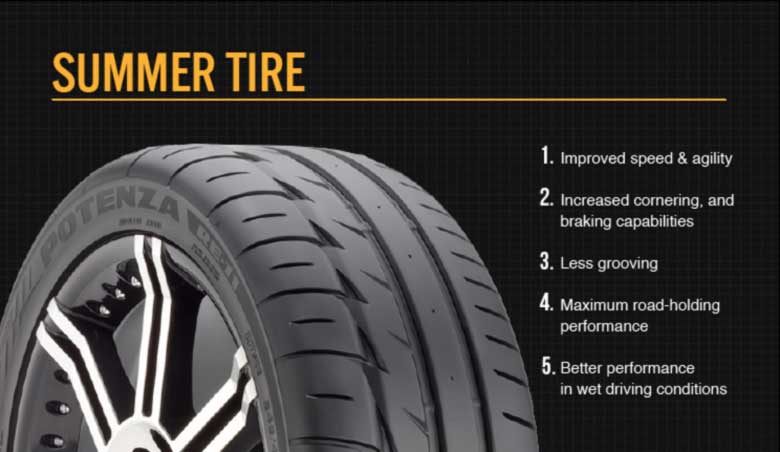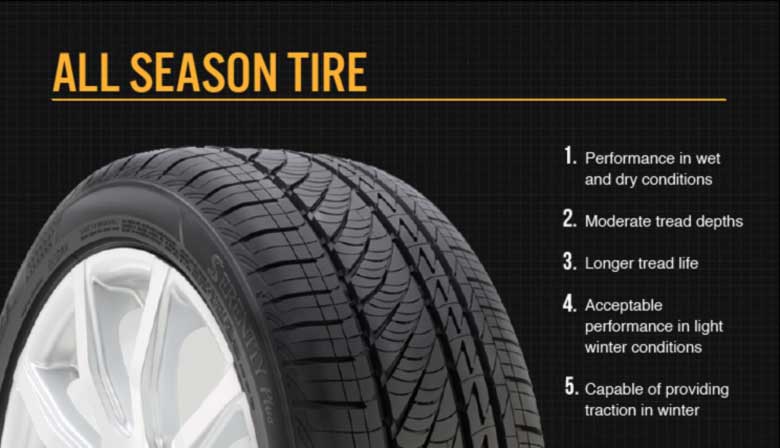There’s a lot of chemistry that goes into keeping your on the road and out of the ditch. The simple fact is that in order to function consistently at an enormous range of operating temperatures, all-season tires do not work as effectively at the extremes of their range. Thus, if you live somewhere like I do that is 105°F (40°C) in the summer, but 5°F (-15°C) in the winter, you need dedicated tires for each season.
We already wrote about how to prepare a winter sports car for a winter season, and the question of winter tires is just one and it’s an important part in preparing a car for winter driving conditions (read also: Winter Driving Safety Tips).

Not many people actually know much about tires, so here is my small guide in the jungle. Tires have many functions and applications besides looking good on the “rimz”. Comfort, safety, and speed are 3 things most of us are looking after. When the car manufacturer is using 400 engineers to make the car handle and act the way they “hope” it should, they make a template on about what kind of average tire it should be in size and all that stuff.
Now the tire companies are working on making tires the same way. But they have to work with more important rules like Grip, durability, comfort, and function. So they make as standard 3 types of tires, summer, winter and all-season tires (Here in Europe we call them “M+S” Mud & snow).

Winter tires are made out of a rubber combination that is keeping the same softness in cold weather as it should, the treads are made to get better grip on snow and on ice (depending if u have studs on the tire) Bad things is during summer or warmer temperatures the tire will wear out fast, and it does not remove water as good as a summer tire does.

Summer tires are made out of a rubber combination that keeps the same “softness” in warm weather. They are very good on removing water when it’s raining, that’s to ensure u still have the nice grip when u need to brake fast. During winter the grip they get from snow and ice is; well run out on the bowling lane with regular sneakers and u figure it out. Oh and they do wear out faster in cold weather than in warm.

All-season tires or M+S, is a mixed combination of summer and winter tires, but it does not work as effectively as winter or summer. We would guess and say about 80%-85% as effective as the other 2. Why does not everyone drive with them then? Well, they cost more not always as comfortable and quiet as the other ones are, and the wear out faster. When it comes to slicks and “street slicks” keep them off the road because they are not safe at all.











Depends where you live and the temperature variation.